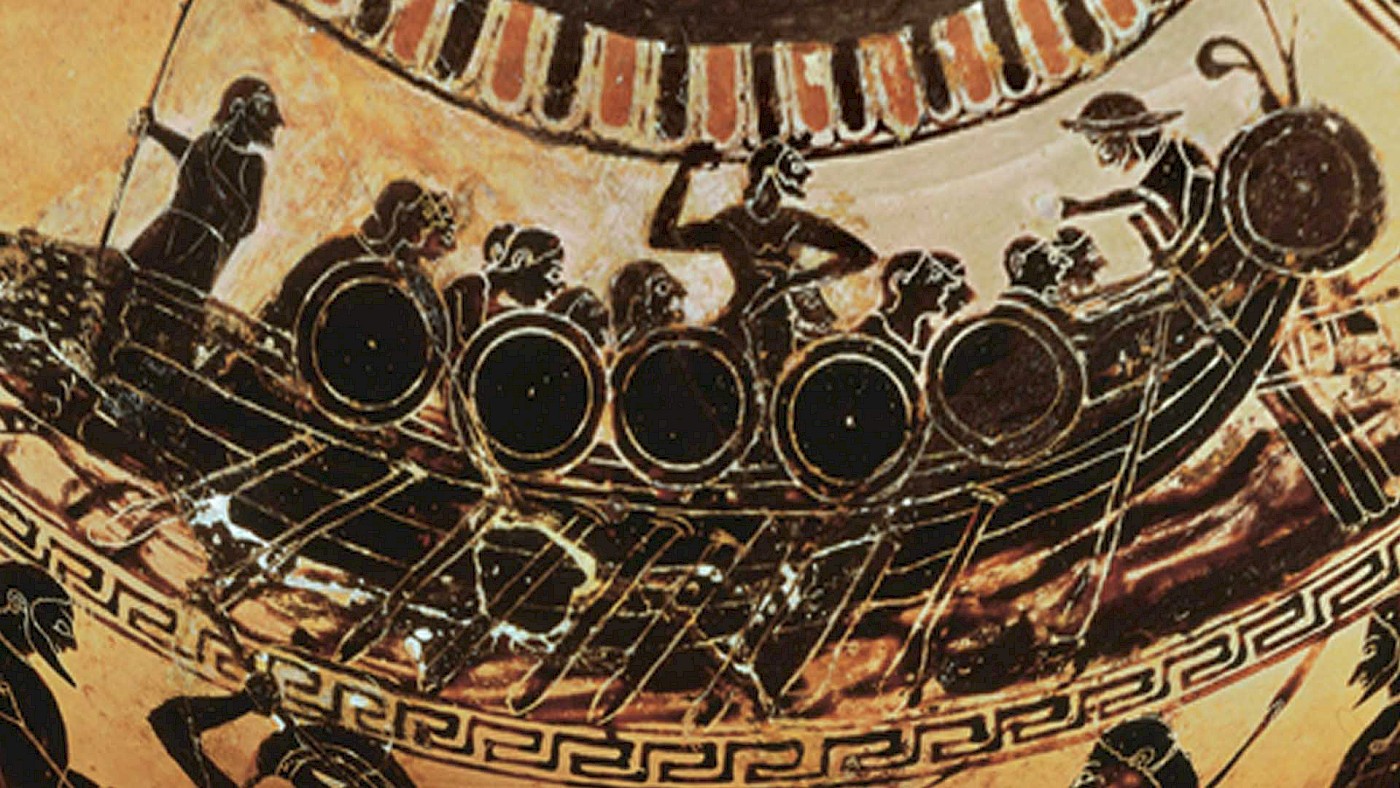In the story about Jason, his expedition to recover the Golden Fleece from Colchis takes centre stage. In order to get to Colchis, Jason ordered the construction of a magnificent ship, dubbed the Argo (Greek for “swift”) and named after its builder, Argus (Greek: Argos).
The ship itself looked, as far as ancient art is concerned, like a Greek pentekontoros or fifty-oared galley. As its crew, Jason recruited heroes from all over Greece, whose number included Peleus, the father of the later hero Achilles, and the indomitable Heracles. Together, the intrepid crew of the Argo were referred to as the Argonauts (Greek: Argonautai), combining the name of the vessel with the Greek word for “sailors”.
The vessel was built at Pagasae, the port of the town of Iolcus, using timber cut from the nearby mountain of Pelion. None other than the goddess Athena herself helped in the construction of the ship. She fitted the vessel with an oracular piece of wood into her bow that was taken from the Oracle of Zeus at Dodona, an important and ancient sanctuary in Epirus. This piece of wood was able to speak and make prophesies, which help the crew stave off the disaster at least once in the course of their (return) voyage.
Of all the Greek heroes, Jason is probably the least likable, and his betrayal of Medea caused him to end his life alone and unhappy. He is said to have fallen asleep within the rotting husk of the Argo when a piece of the ship broke off and fell on him, killing him instantly. While I know of no ancient source that makes this connection, it would be fitting if he was killed by the oracular piece of wood from Dodona.
